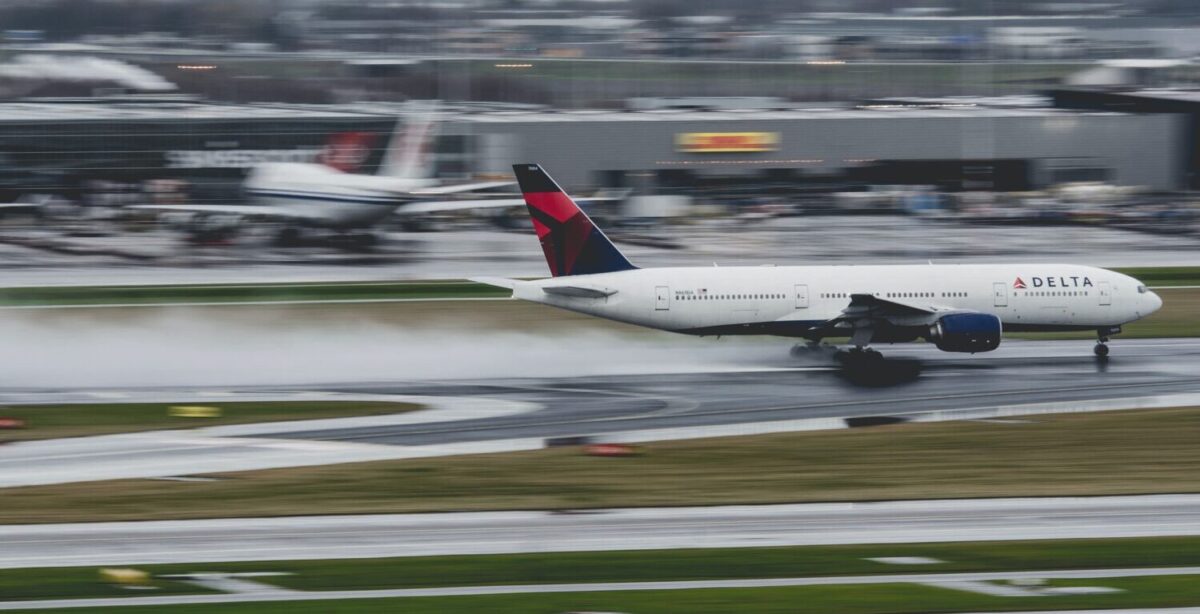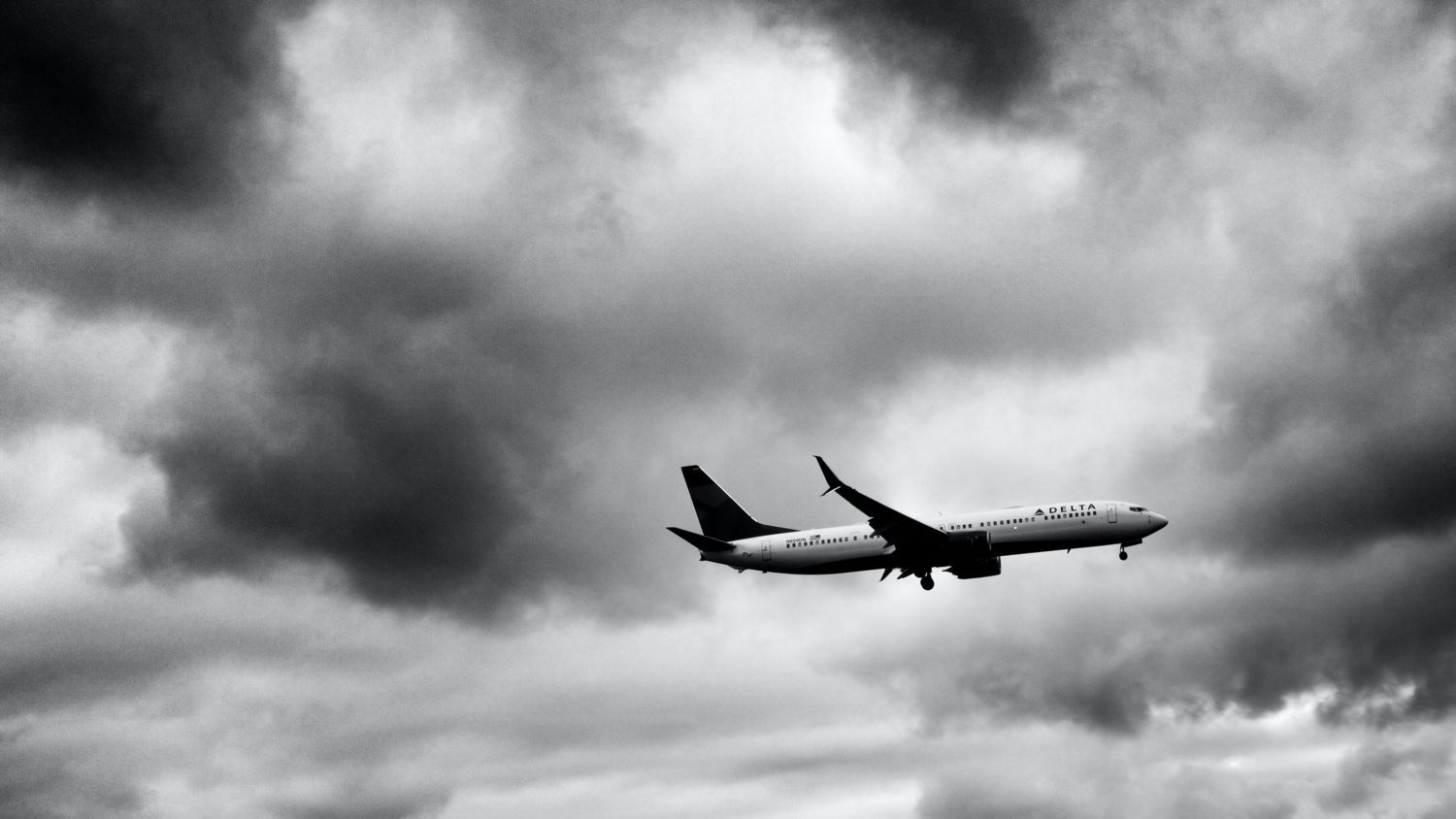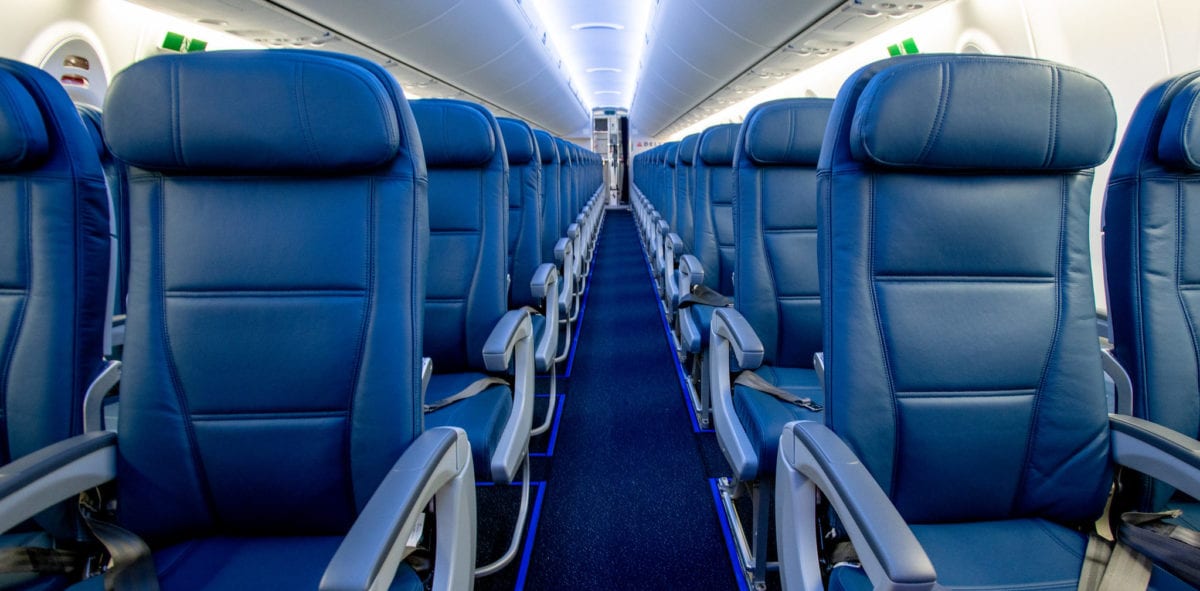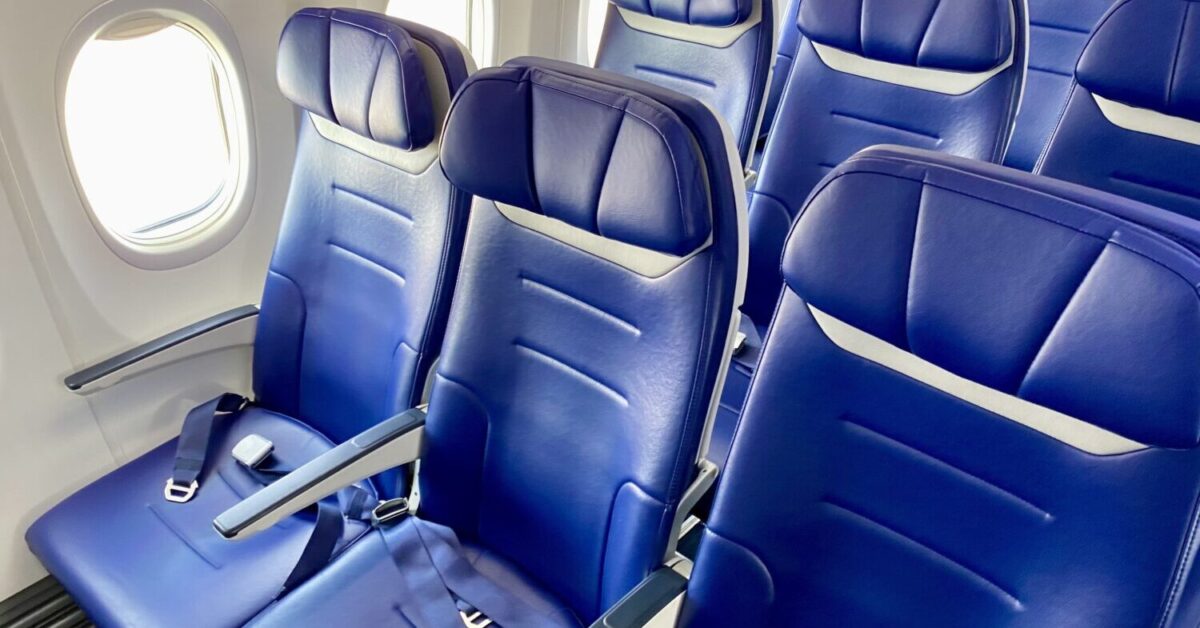Two weeks ago, Delta CEO Ed Bastian was doing his latest victory lap, bragging to investors about “Delta's industry leadership” and being “the most reliable airline in the U.S.”
Over the past seven days, Delta canceled more than 5,500 flights – more than all of 2018 and 2019 combined.
While other airlines recovered within days (if not hours) of a global software outage last Friday, it pushed Delta's own systems past the breaking point, spiraling into a historic and embarrassing meltdown. By Thursday this week, Delta had stabilized and was back to flying smoothly.
Now comes the fallout.
Millions of Americans might have finally made it home, but only after days of cancellations, booking flights on other airlines, or even renting a car to drive cross-country. Some are still waiting for their lost luggage to be returned, while many more wait for the airline to make good on its promise to them whole: refunding canceled flights, reimbursing those flights on other carriers, and covering extra hotel nights and other expenses.
It will take weeks (if not months) for a full postmortem of exactly what went so wrong for Delta, what it will cost the airline, and how it can be fixed. It could take even longer to gauge the long-term damage to Delta's brand, a self-proclaimed premium airline and “on-time machine.”
But a handful of decisions at Delta headquarters and in their ensuing public response as the airline fell apart have clearly put the Atlanta-based airline on its heels.
A Critical System Falters (Not CrowdStrike)
No one doubts what set this in motion.
In the early morning hours last Friday, the cybersecurity software platform CrowdStrike crashed following a faulty update. That brought down critical Microsoft computer systems for many major airlines in the U.S. and across the globe, forcing employees to write out boarding passes with pen and paper and adjust their schedules on the fly – all to buy some time to get back up and running.
But what started as a CrowdStrike problem quickly snowballed into a Delta problem – and a Delta problem alone. By Monday, Delta had canceled more than 1,000 flights for a fourth consecutive day while no other major U.S. carrier canceled more than 100 that day.
Why did other airlines recover while only Delta fell apart? In public statements and internal messages to employees, Delta admitted that one of its critical crew scheduling platforms – one the airline uses to track down its pilots and flight attendants and assign them to flights – broke down.
But it wasn't just a victim of the CrowdStrike outage: That software eventually buckled under the weight of Friday's stoppage.
Unable to find and assign crew to flights around the country, it forced Delta to cancel more and more flights as other airlines merely delayed theirs. Cancellations mounted, further overwhelming the fragile system and causing a snowball effect that would eventually take days for Delta to recover from.
“If you’re unable to track crew .. it’s going to fail. And in the worst case, it fails for days,” said Robert Mann, a former airline executive and current aviation industry analyst.
As a disastrous weekend continued at Delta, Bastian finally hinted at the root issue in a statement, saying “one of our crew tracking-related tools was affected and unable to effectively process the unprecedented number of changes triggered by the system shutdown.”
Bastian and other executives were more forthcoming with employees about the gravity of the problem.
Days into the meltdown, Chief Information Officer Rahul Samant told employees on Monday that while the rest of Delta's technology was back up and running, the crew tracking system was still not.
“That's been the system that we've tried to pump more horsepower into,” Samant said, according to a transcript of the exchange provided to Thrifty Traveler. But several efforts over the weekend to restart it would sputter, triggering more cancellations that would, in turn, make matters worse.
“We have a catch up to do, and we drain the queue and new things come on. Because it's a very dynamic environment,” Samant added.
Mann, the aviation analyst, said that airlines' crew tracking platforms are often “some of the oldest and in-house built systems around.
“These systems are as old as some of the airlines,” he added.
And the pain of that shutdown went beyond Delta itself, extending to some of its regional carriers – or one of them, anyway.
Endeavor Air operates flights in and out of Minneapolis-St. Paul (MSP), the New York area, and other markets under the banner of Delta Connection – much like other regional carriers like SkyWest. But unlike those other regional partners, Endeavor is a wholly owned Delta subsidiary … and its technology is managed by its sponsor airline.
That overlap caused nearly 1,000 additional Delta flights operated by Endeavor to be canceled even as SkyWest, for example, was barely affected.
All told, Delta and Endeavor scrapped more than 6,000 flights in a five-day span while delaying nearly 10,000 more – more than the rest of U.S. airlines combined. If it's not the airline's worst operational collapse ever, it's close.
But it Delta's public response that made it worse.
Radio Silence, Blame Games & A Disappearing CEO
Nature abhors a vacuum. So do travelers in the midst of a meltdown.
Delays and cancellations are an unfortunate reality in air travel. But what's even worse for travelers is having no clue what's going on or when things would get back to normal … and feeling like your airline doesn't either. You feel powerless.
Delta left millions of Americans in the dark for too long.
As cancellations mounted with no signs of improvement, Delta never gave customers an estimate on when it hoped to resume – nor responded to direct questions from Thrifty Traveler asking the same – until the operation was nearly back on track. It also paused its unaccompanied minor travel program for five full days without a word to parents on the reason why.
What little Delta said publicly during the worst of the meltdown had one clear goal: Pin all the blame on CrowdStrike.
In an open letter posted Wednesday afternoon, CEO Ed Bastian cited “the CrowdStrike outage” and again referenced “the CrowdStrike-caused outage” … both before offering an apology to his customers. The airline even sent out an update to reporters early this week with the subject line: “Delta ‘CrowdStrike' Ops recovery.”
And while waiting up to 20 hours for a response from customer service earlier this week, Delta's automated chatbot explained that the long delays were due to “a vendor technology issue that has impacted several airlines and businesses around the world.”
Considering Delta was still canceling 1,000-plus flights a day while other carriers were flying smoothly, those explanations were an insult to Delta flyers' intelligence.
To date, neither Bastian (nor any of Delta's other highly paid executives) have done media interviews or gone on camera to offer an explanation or apology directly to customers. Southwest also got flak for a slow response to its catastrophic meltdown over Christmas 2022, but CEO Bob Jordan was still on camera within days to explain what went wrong and to “please also hear that I'm truly sorry.”
To Brian Sumers, Delta's botched response was far more shocking than the operational collapse itself.
“The airline's senior executives didn't go on TV, or express empathy, or explain in detail what they were doing to help,” said Sumers, an aviation expert and author of the newsletter The Airline Observer. “Even as passengers struggled at airports, or while attempting to coax the very moody rebooking system into working, Delta seemed to want to downplay the issue.”
By Tuesday, Delta was faring better but still canceled more than 500 flights that day. But a flight from Atlanta (ATL) to Paris-Charles de Gaulle (CDG) Tuesday night wasn't scrapped … and Bastian was on it.
As the fallout continued, Bastian made matters worse by jetting off to Paris for the Summer Olympics this week. Delta is the airline sponsor of the U.S. Olympic Team, of course,, and the airline explained that its CEO had delayed his long-planned trip several days “until he was confident the airline was firmly on the path to recovery.”
Still, it struck many as tone-deaf and aloof at a time when he should have been in front of a camera, grabbing bags or greeting customers. Frontline employees accused Bastian and the airline's leadership of abandoning them to bear the brunt of the meltdown.
“While management gave us baggies of laundry detergent in crew lounges, Ed and several board members traveled to Paris instead of being on the front lines leading us through this turmoil,” the Delta Association of Flight Attendants, an organization trying to unionize Delta's flight attendants, wrote of the trip.
It's not Ed Bastian's job to physically keep Delta planes moving – that's not any airline CEO's real role. There's an argument to be made that his time is best spent glad-handing with fellow business executives and foreign leaders, focusing on the big picture.
But Delta is a savvy airline that has spent the last decade building die-hard loyalty to its brand based on understanding the power of building an emotional connection. Delta flyers, in particular, wear their Medallion Status or wave around their co-branded Amex cards like a badge of honor. That's no accident.
Heading to Paris even as some passengers were still sleeping on airport floors sent a clear message to the travelers who caught wind of his trip: Delta doesn't care about me.
A $100 Apology = A Slap in the Face
Jason Kemppainen spent more than five days and $2,000 out of pocket trying and failing to get home from Boston (BOS) this week.
He boarded a flight in Boston (BOS) last weekend only to sit on the tarmac for hours then be forced to deplane, rented a car and drove up to Maine in hopes of catching another flight that was subsequently canceled, and footed the bill for extra hotels and meals when Delta agents ran out of vouchers. Stranded on the East Coast all week, he missed celebrating his wedding anniversary, his mother's birthday, and seeing his daughter one last time before she went off to summer camp.
Delta's apology for his troubles? A choice between a $100 voucher or 10,000 Delta SkyMiles.
“I was so insulted,” Kemppainen said. “They’ll give you $2,000 to give up your seat on an oversold flight but only $100 to abandon you for five days. This is criminal.”
Kemppainen's woes are extreme, but Delta's response is common.
Delta has said it's doling out SkyMiles or vouchers in an amount “based on the customer’s affected travels” – and by the looks of it, it's not much. Many travelers who were stranded by Delta for hours have reported getting just $100 vouchers or 10,000, maybe 12,500 SkyMiles.
To be clear, some travelers are reporting receiving more from Delta as an apology, particularly those who endured multiple days of delays and cancellations. But those 10,000- or 12,500-mile apologies are the standard. At least for now.
And for many, it's nowhere near enough to put the disruptions in the rearview.
Too Little, Too Late?
Delta's efforts to make things right go beyond doling out a few thousand SkyMiles. They've put themselves on the hook for refunding canceled flights and covering many of the additional expenses travelers incurred as a result of the airline's collapse.
But in that regard, too, Delta could have done more – or at least committed to doing so faster.
As the disruptions snowballed over the weekend, Delta vowed it would offer refunds to travelers whose reservations were canceled or significantly delayed as well as extra costs like hotels and meals. That's the bare minimum, though: Both are required by federal law and Department of Transportation regulations.
But backup flights on United, American, or other airlines that could keep passengers moving while Delta was frozen? No way, Delta said for days.
With pressure mounting from the federal government and a DOT investigation, the airline eventually reversed course and said it would cover the cost of tickets on other carriers. Travelers whose Delta flights were disrupted between July 19 and July 28 can submit all those expenses for reimbursement at Delta's dedicated page.
“We know many customers have incurred unplanned travel expenses, including purchasing tickets on other airlines, rental cars, train tickets and more. Delta will cover reasonable costs for additional categories of expenses,” Delta said in a statement. It's currently unclear how long it will take for these reimbursement requests to be processed.
Federal law doesn't require airlines to cover tickets on other carriers when things go wrong. It's left up to airlines to decide how far they need to go to make things right with loyal customers.
So on one hand, this is a good (and potentially necessary) move. Many travelers scrambled to book pricey, last-minute flights with other airlines, assuming Delta would foot the bill. Others will be surprised to find they'll be made whole, or close to it. And without a doubt, it'll cost Delta hundreds of millions of dollars.
On the other hand, Delta could have gone much further. By waiting to announce it would cover alternate flights until Wednesday – when Delta's operation had largely stabilized – many frustrated customers won't benefit: They already gave up on their trips and went home.
Plus, Delta hasn't put much muscle into informing customers that this is even an option. Case in point: Flights on other airlines aren't explicitly mentioned in the automated emails being sent to customers whose travels were affected this past week.
Put it all together, and much of Delta's response thus far feels more like par for the course. It's what you can expect Delta to do when your seatback screen and Wi-Fi don't work or your flight departs a few hours late – not an unprecedented, brand-damaging meltdown that affected millions of Americans.
“People have high expectations for Delta, and while it doesn't always deliver, travelers could count on Delta to make it right if it messed up. It's part of the reason people generally pay a premium to fly Delta,” Sumers said. “If Delta spends some time and effort to apologize and to win-back customers, I'm sure it will be fine. But if it continues to downplay what happened over the last week, I'm not sure.”
Bottom Line
It took Delta five or six days to put an end to arguably its worst-ever operational collapse. But it's not over yet.
Delta has set itself apart over the last decade as the country's most reliable airline. Canceling thousands of flights in under a week hurts that reputation, naturally.
But an airline's brand is far more than just running flights on time. And it's the other things – honestly communicating with customers, being present and accountable, and going above and beyond to make things right – that could do more lasting damage to Delta.












Do you think Delta may have an international award sale for the holidays coming up (to make up for some of this downfall)?
It wouldn’t surprise me in the least if Delta rolled out some massive deals in the days/weeks to come. We’re watching for it.
Awesome Kyle! Keep up the great work (and your team)!!!
Delta was our choice for almost 20 years. Between this event, raising the AF on the Amex card, constantly changing flights booked 11 motnhs in advance, and finally cancelling a voucher for a canceled flight during Covid….Delta could cease to exist. I won’t use them anymore!
If only Delta would have offered such a detailed and thorough explanation of the problem rather than skirt the blame, customers may have been more open to staying loyal to Delta. Thanks for this great article! One of the reasons I’m a loyal follower of Thrifty Traveler!
only been loyal to 2 airlines ….EAL (then Continental)….and past 15 years AAL….(TOTAL PLEASED W AAL)
SO SO SAD IN TODAYS WORLD OF HATRED……ANOTHER REASON TO
DESPISE / THE NERVE/ TO PULL THESE TRICKS ON DELTA LOYAL/AND
OCCASIONAL TRAVELERS….HOPE THEY SUFFER FOR YEARS
I’m a Delta Million-Miler and was Diamond for many years – now retired and ‘lifetime’ Gold.
I was a loyal customer until the big Delta devaluation (and then small walk-back) last year. But the writing on the wall has been coming. Delta’s top execs, esp Ed Bastian, think they’re the smartest people in the room and everyone else is stupid. What they tout and what actually is, are two different things.
My wife and are have become ‘free-agents’ with the variety and choice of many other airlines out there – it’s worked out well for us and I would encourage others to do so too.
We still fly Delta (once in a while only when it serves our interest), but we don’t believe the Delta ‘hype’ anymore and there are plenty of other good choices.
Delta is definitely planning to reimburse travelers for their expenses. This article lacks a lot of facts that will come out with time.
Yes! Why hasn’t the author included facts that have not yet come to light?
This does not surprise me at all – either the executive response or Ed Bastian’s. I worked for Delta for 13 years some of that in a Board of Directors capacity and I’ve never seen more arrogant executives in my entire life. This should shock no one. I’ve worked for 4 Fortune 500 companies and not one comes close to Delta’s level of hubris. Bastian, Hauenstein, Mapes…the lot of them. Arrogant beyond measure.
This year I still have Delta Platinum status. Delta keeps moving the goalposts so that will end soon. They are teaching us how to fly other airlines.